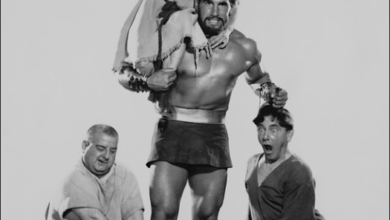
In his thought-provoking article titled “NHL won’t be able to sweep Hockey Canada’s mess under the rug,” esteemed columnist Jack Todd brings to light the deeply troubling issue of sexual abuse allegations within Hockey Canada and urges the NHL to take a more proactive approach in addressing and preventing such incidents. By emphasizing the need for transparency, accountability, and support for victims, Todd compellingly argues that it is imperative for the NHL and other sports organizations to confront the issue head-on rather than sidestep it. In this extended article, we will delve even deeper into the intricacies of the controversy surrounding Hockey Canada’s handling of sexual abuse allegations and explore the necessary measures the NHL should undertake to create a safer and more respectful environment for athletes.
1. The Controversy Surrounding Hockey Canada’s Handling of Sexual Abuse Allegations
The article brings to the forefront the ongoing controversy surrounding Hockey Canada’s response to sexual abuse allegations. Reports of abuse within the sport have sparked public outrage, leading to serious questions about the organization’s commitment to protecting athletes and upholding ethical standards. Allegations of misconduct and cover-ups by officials have only added to the gravity of the situation, making it clear that decisive action must be taken.
To fully understand the significance of this controversy, we must recognize that sexual abuse in sports is not confined to a single country or organization. It is a pervasive issue that transcends national borders and affects various sports disciplines worldwide. The courage of survivors who have spoken out against their abusers has shed light on the magnitude of the problem and highlighted the pressing need for systemic change.
2. NHL’s Responsibility and Accountability
As the premier professional hockey league, the NHL holds significant influence within the sports community. Consequently, the league bears a moral and ethical responsibility to address the pressing issue of sexual abuse. By acknowledging their role as a major stakeholder, the NHL must not shy away from the problem but instead embrace it with courage and commitment to effect change. Failure to do so could erode public trust and tarnish the league’s reputation irreparably.
Moreover, as an organization that promotes athleticism, teamwork, and leadership, the NHL should aspire to become a beacon of integrity and compassion. By taking a firm stance against sexual abuse, the league can set a precedent for other sports organizations to follow, sending a powerful message that abuse will not be tolerated in any form.
3. Supporting Victims of Sexual Abuse
One of the most disheartening aspects highlighted in Todd’s article is the lack of adequate support provided to the victims of sexual abuse. Beyond simply addressing allegations, the NHL must actively collaborate with organizations like Hockey Canada to ensure that survivors receive the necessary assistance and resources. The implementation of dedicated support programs, access to professional counseling, and legal assistance can empower victims to share their experiences and seek justice.
Victims of sexual abuse often face immense psychological trauma, fear, and shame that can deter them from reporting the abuse they have endured. Creating a safe and compassionate environment where victims are heard, believed, and supported can be transformative for their healing process. The NHL can work in tandem with mental health professionals and advocacy groups to provide comprehensive care tailored to the unique needs of survivors.
4. Promoting a Culture of Reporting and Accountability
To combat sexual abuse effectively, the NHL must instill a culture of reporting and accountability within the sport. Athletes, coaches, and staff should feel empowered to report any suspicious or inappropriate behavior without fear of retribution. Establishing anonymous reporting mechanisms can provide a safe space for individuals to come forward, ensuring that incidents are dealt with promptly and impartially.
In conjunction with anonymous reporting channels, the league should implement stringent policies that protect whistleblowers from retaliation. Encouraging open dialogue about issues related to sexual abuse and harassment can foster an environment where individuals feel confident in raising concerns without fearing negative consequences for their careers or personal lives.
5. The Importance of Transparency
Transparency plays a pivotal role in restoring public faith and trust in the NHL’s commitment to combating sexual abuse. The league must be forthcoming in acknowledging any instances of abuse within the sport and transparent about the actions they take to address such cases. By sharing updates on investigations and measures taken, the NHL can demonstrate its dedication to rooting out abuse from the sport.
In addition to transparency in handling individual cases, the NHL should consider publishing annual reports on the progress made in addressing sexual abuse and the impact of their preventative initiatives. Such reports can provide stakeholders, including fans, athletes, and sponsors, with a comprehensive overview of the league’s commitment to confronting the issue.
6. The Need for Preventative Measures
Beyond reacting to incidents after they occur, the NHL should prioritize preventative measures aimed at stopping sexual abuse from happening in the first place. Developing comprehensive educational programs on appropriate conduct, consent, and respectful behavior can serve as a powerful tool in nurturing a safe and inclusive environment for all athletes. Furthermore, ensuring that all coaching and staff members undergo mandatory training on recognizing and reporting abuse is crucial.
Incorporating preventative measures into the training and development of athletes can create a lasting impact on their understanding of consent and appropriate behavior. By instilling these values from an early age, athletes are more likely to be proactive bystanders who intervene in situations where they suspect abuse may be occurring.
7. Collaborating with Athlete Organization
In the pursuit of safeguarding athletes, the NHL should actively collaborate with athlete organizations, unions, and advocacy groups. These stakeholders possess valuable insights into the challenges faced by athletes and can contribute to shaping more effective policies and procedures. By working together, they can create a united front against sexual abuse and foster a more empathetic and understanding sports culture.
Collaboration with athlete organizations can also aid in the identification of potential risk factors that make athletes vulnerable to abuse. By addressing these factors collectively, the NHL can create a more supportive environment that prioritizes the well-being and safety of all individuals involved in the sport.
8. Learning from Past Mistakes
Drawing from past controversies in sports where abuse allegations were mishandled or ignored, the NHL must take a critical stance on learning from these mistakes. Analyzing and understanding previous failures can guide the league in implementing measures that break the cycle of abuse and ensure a comprehensive and compassionate response when incidents arise.
Conducting internal and external reviews of previous cases of abuse can shed light on areas where the NHL’s response fell short. These reviews can help identify patterns, gaps, and potential shortcomings in the league’s current policies and processes, allowing for meaningful improvements.
9. Incorporating Technology for Safeguarding
Leveraging technology can play a crucial role in safeguarding athletes from sexual abuse. The NHL should explore the use of anonymous reporting apps and online platforms where individuals can disclose any instances of misconduct they may have witnessed or experienced. Additionally, utilizing data analytics can help identify patterns and potential red flags, enabling the league to act preventively.
Data analytics can also be employed to track and assess the effectiveness of preventative programs and initiatives. By analyzing the impact of various strategies, the NHL can refine and adapt its approach to ensure that they remain responsive to the ever-changing nature of sexual abuse prevention.
Conclusion
In conclusion, Jack Todd’s article serves as a poignant wake-up call to the NHL and all sports organizations that sexual abuse allegations demand immediate attention, accountability, and transformative action. By embracing transparency, supporting survivors, and working collaboratively with stakeholders, the NHL can pave the way for a safer and more inclusive future for sports. Only through genuine commitment and unwavering action can we ensure that sexual abuse is never again swept under the rug. As the beacon of professional hockey, the NHL has the opportunity and responsibility to lead the charge in eradicating abuse from the sport, setting a powerful example for other leagues worldwide. By taking bold steps towards change, the NHL can shape a future where athletes can compete with confidence, knowing that they are respected, protected, and heard. The journey to creating a culture of safety and respect within sports may be challenging, but it is one that the NHL must undertake with unwavering dedication to uphold the dignity and well-being of all those who contribute to the beautiful game of hockey.


